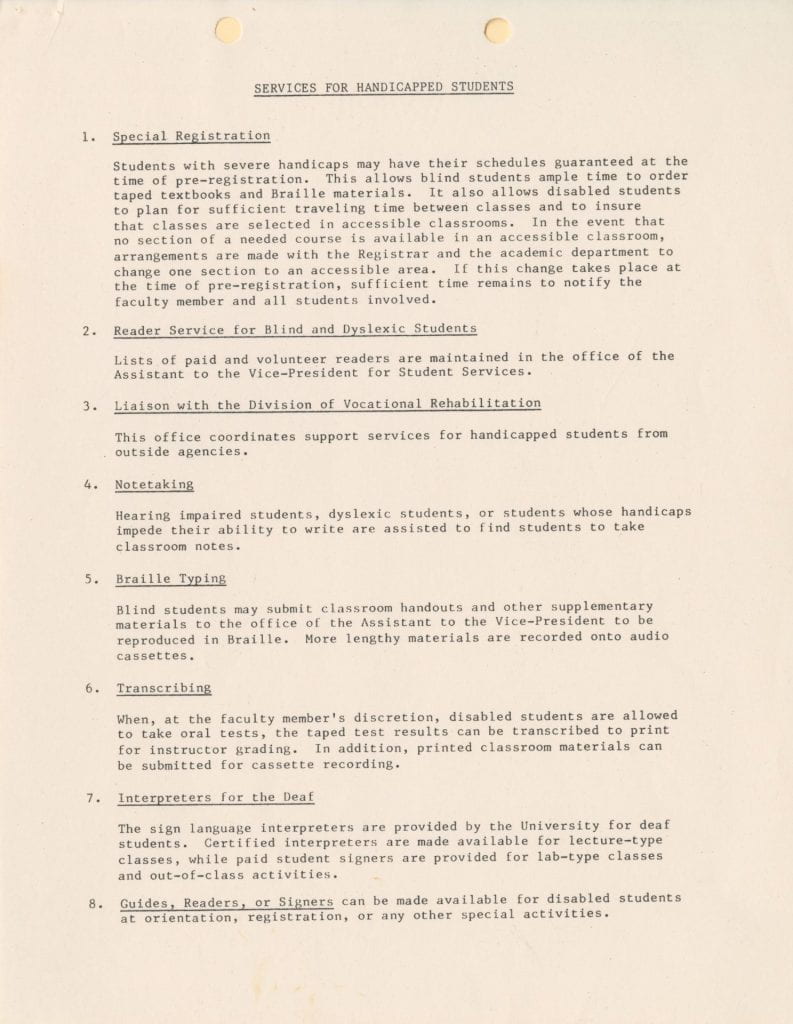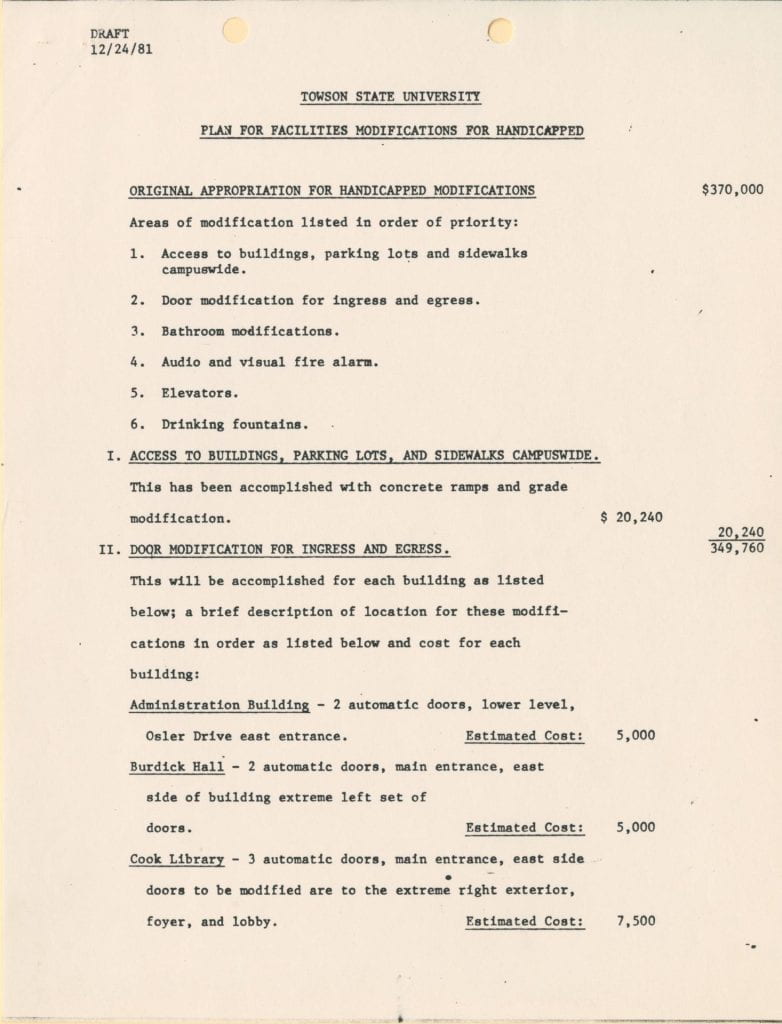This post was written by Bethany Firebaugh, Unearthing Towson’s History student researcher, Summer 2023.
Section 504 of the Rehabilitation Act of 1973
What It Is
Section 504 of the Rehabilitation Act of 1973 is a federal law that prohibits any program and institution that receives federal funding from discriminating against an individual on the basis of disability. The law protects any individual who is viewed as having a physical or mental infirmity.
When applied to the realm of higher education, Section 504 dictates that disabled students must be supplied with comparable education opportunities to their able-bodied peers. In practice, this means ensuring that all campus buildings and courses are accessible, whether that be through construction projects, like the inclusion elevators in buildings, or providing special services, such as translators.
How It Shaped TU
Prior to the passage of Section 504, several aspects of TU proved inaccessible to disabled students. Buildings like admissions, which did not provide handicap access to the second floor, presented architectural barriers to physically disabled students. While the college did employ a part-time disabled student counselor, beginning in 1970, overall, University provided services for disabled students where spare.

In 1973, TU was receiving federal funding, causing Section 504 to be applicable to the university. In response, services for disabled students, such as special registration and interpreters began to be provided for students in need. Plans for facility modifications, which included door and bathroom alterations, were made to provide building accessibility.

American Disabilities Act of 1990
What It Is
The American Disabilities Act of 1990 (ADA) is a federal law that protects against discrimination in employment and public services/accommodations. The law is meant to ensure accessibility in the workplace, as well as in places of day-to-day life, such as the grocery store or restaurants. Prior to the passage of the ADA, employers and the public sphere were not required to provide accommodations for disabled Americans.
How It Shaped TU
This legislation granted disabled TU students the ability to pursue a degree of their choosing without the worry of being able to obtain employment in their chosen field. In an oral history conducted with class of 93’ graduate Arnold ‘Arnie’ Slader, he recounts his decisions to switch from a medical field track to due his student advisor stating that he would never find employment due to being a ‘liability’ because of a diagnosis with cerebral palsy that affected his ability to walk. The ADA ensures that all TU students may choose the career path they wish without having to worry about employment discrimination.